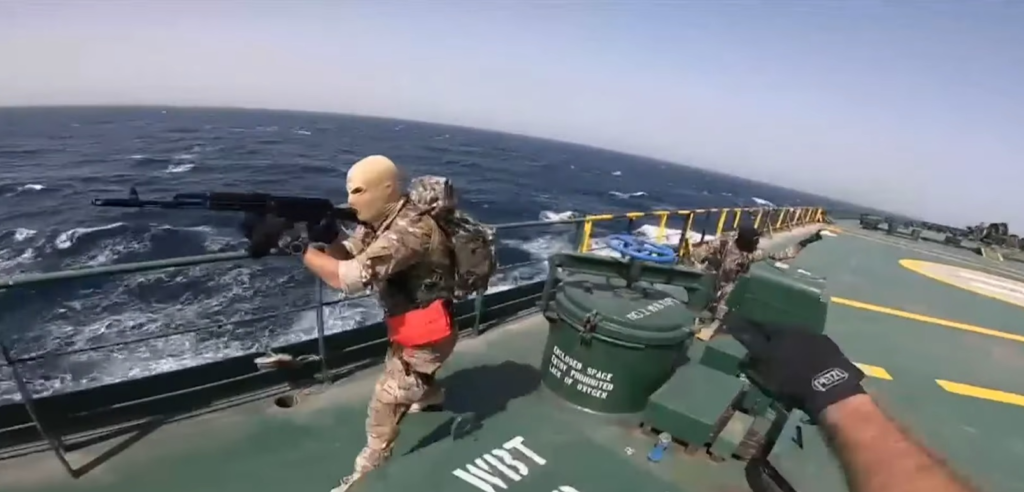June 17, 2022

The Islamic Republic has responded to the rising volume of sandstorms this year by calling on its foreign neighbors Turkiye, Jordan, Iraq, Kuwait and Syria to do something about them without ever saying that some of the blowing sand might actually originate in Iran.
As in politics, so in weather whenever anything untoward happens in Iran, it is all the fault of foreigners.
In Iraq, President Barhan Salih has called for a campaign to reduce the size of sandstorms. Unlike in Iran, he has called for actions to be taken inside Iraq the planting of trees to hold the soil in place; the promotion of clean energy sources; and improved water management so that wetlands will not continue to dry up.
Iraq has been hit by 10 sandstorms in the past two months.
But the government of the Islamic Republic has not announced this year any actions to be taken inside Iran. Instead, it recently signed a memorandum of understanding with Syria on what Syria can do with Iranian help to combat sandstorms. And Iran said it would sign a similar MOU with Iraq in July.
Most of the announcements on the sandstorm issue in recent months have come from the Foreign Ministry, further emphasizing that the threat comes from abroad. In recent weeks, as relations with Turkiye have become testier, the harsher words have been reserved for the Turks.
Interestingly, officials weren’t naming Saudi Arabia as a source of the sand raining down on Iran. In past years, the Saudis have gotten the bulk of the blame. But now, as Iran tries to improve relations with Riyadh, it seems to have become exempt from blame.
But, of course, there is always someone in the regime that does not get the message. And, so, in June Ali Salajegheh, chief of the Environment Department, told a conference that the biggest source of sand falling on Iran is Saudi Arabia. He said 270 million hectares of sandy land in neighboring countries were the source of sand and dust, with 90 million hectares in Saudi Arabia, 24 million in Iraq and four million in Syria. He didn’t say where the other 152 million hectares were located but likely a lot of them are in Iran.
The sand that confronts Iran’s western provinces comes almost entirely from abroad, even from the Sahara Desert in Africa. But much of the sand deposited on Tehran comes from Iran itself, and almost all the sand found in eastern cities like Zahedan comes from within Iran. But the regime declines to admit to that.
This spring has seen an unusually large number of sandstorms all over the country, with Khuzestan province probably being clobbered the most. But Tehran has been hit with repeated sandstorms of such magnitude that schools and even government offices have been closed on five scattered days so far. And five professional soccer matches were postponed.
But the blame game goes on.
The Islamic Republic News Agency (IRNA), the government operated news agency, recently quoted a water resource management expert as putting all the blame on foreign states.
“Iraq does not comply with agreements concluded with Iran to help fight the menace of sandstorms, and Turkey insists on fulfilling its burning dam-building desire without respecting the water rights of neighbors,” Zahir Heidarinejad was quoted as telling IRNA.
As for a deal signed last year between Iraq and Iran, Iraq is obliged to take measures including tree plantation and mulching to stabilize the soil, yet the Arab nation has almost done nothing in this regard, he said.
